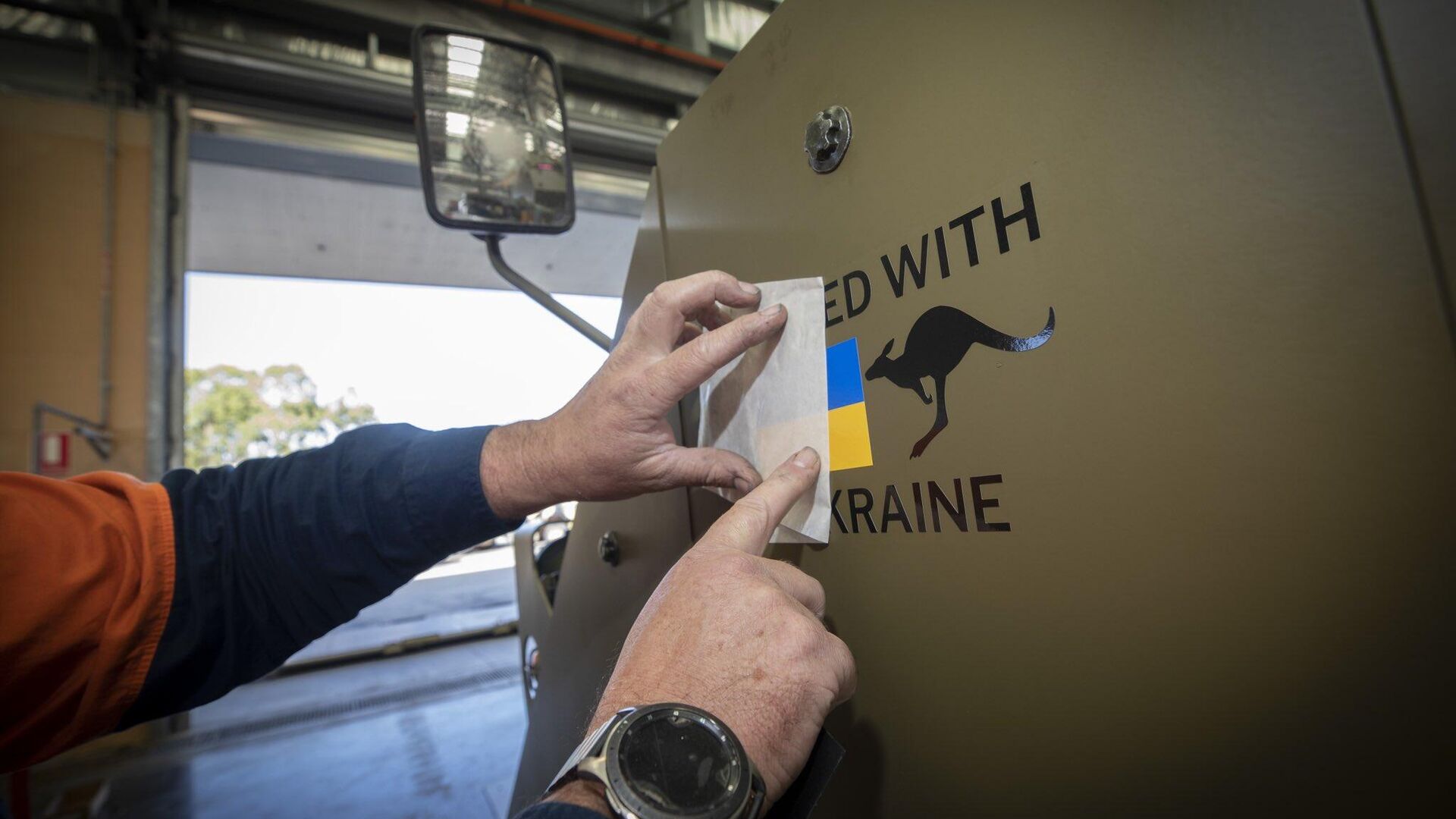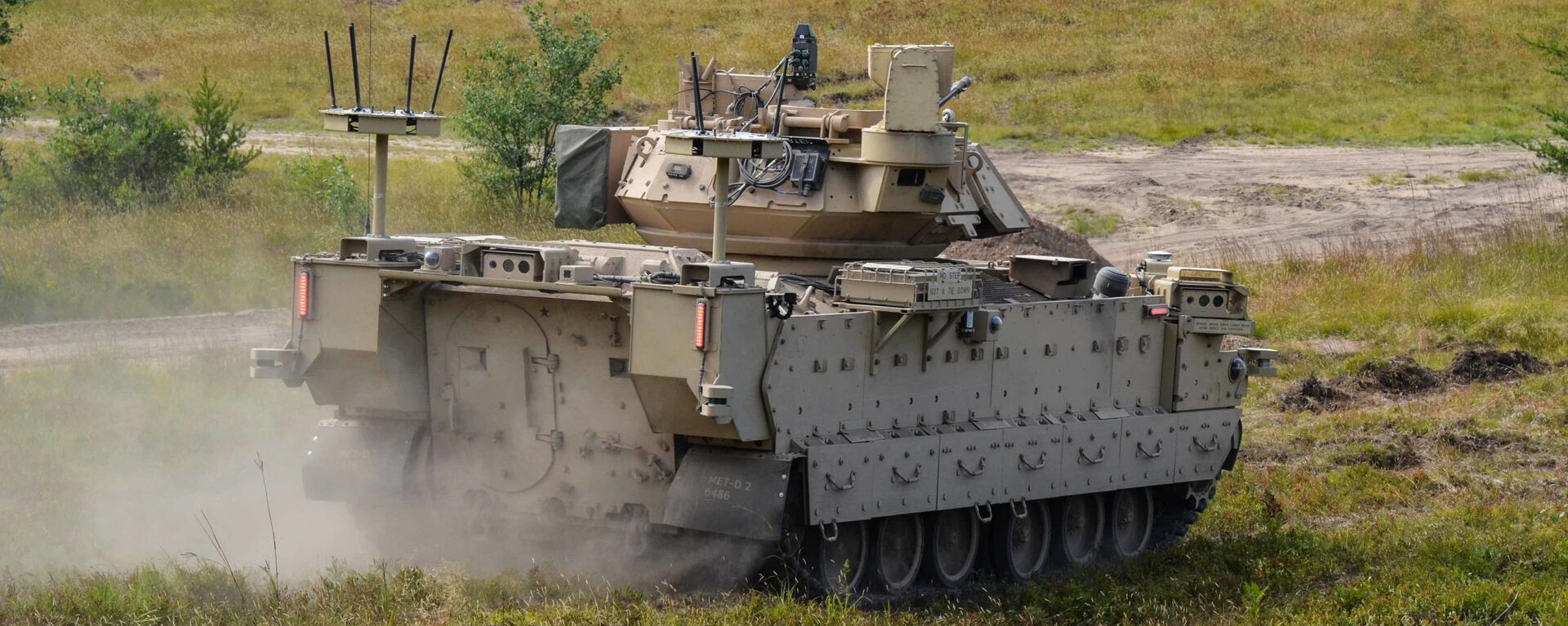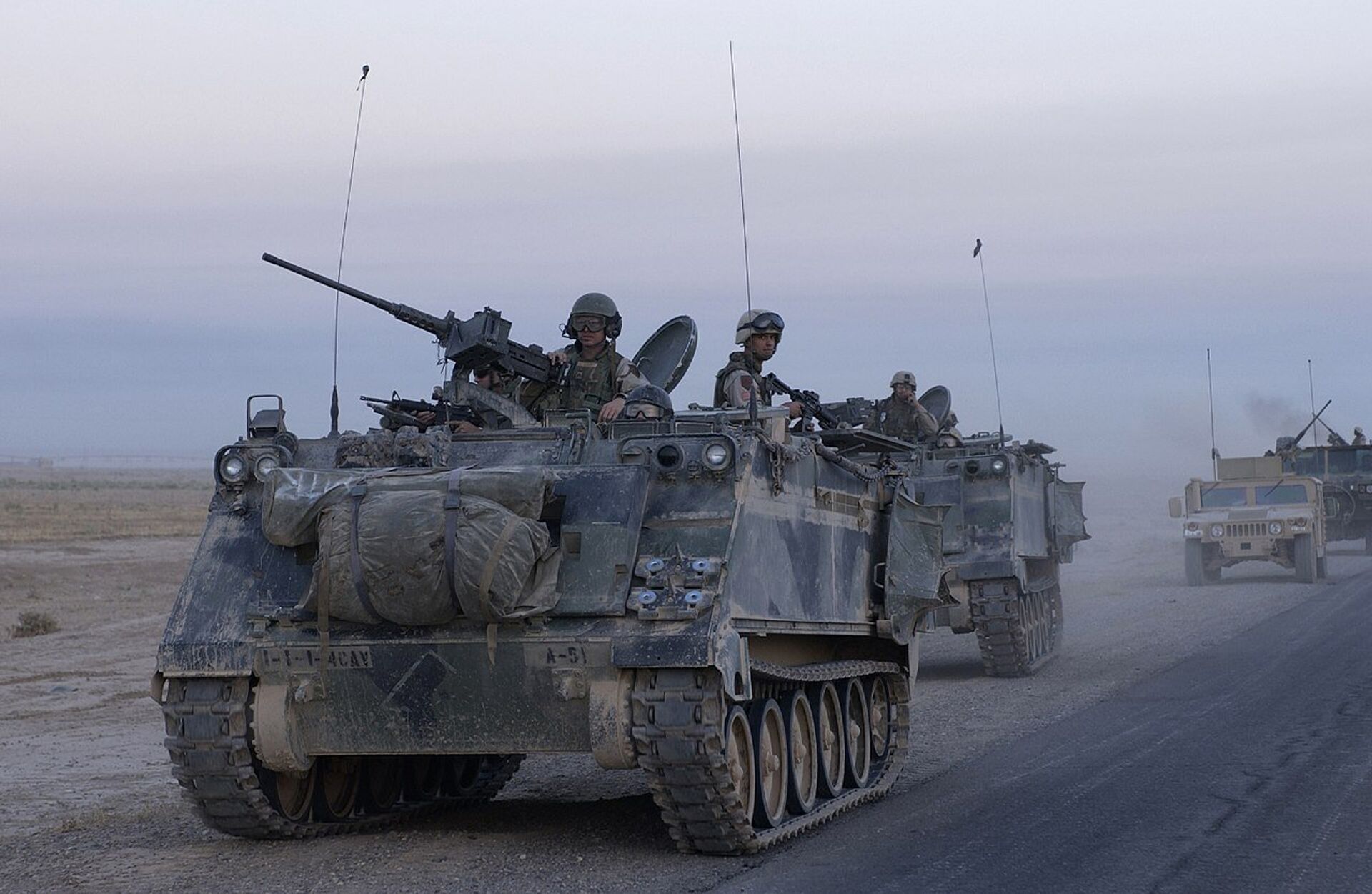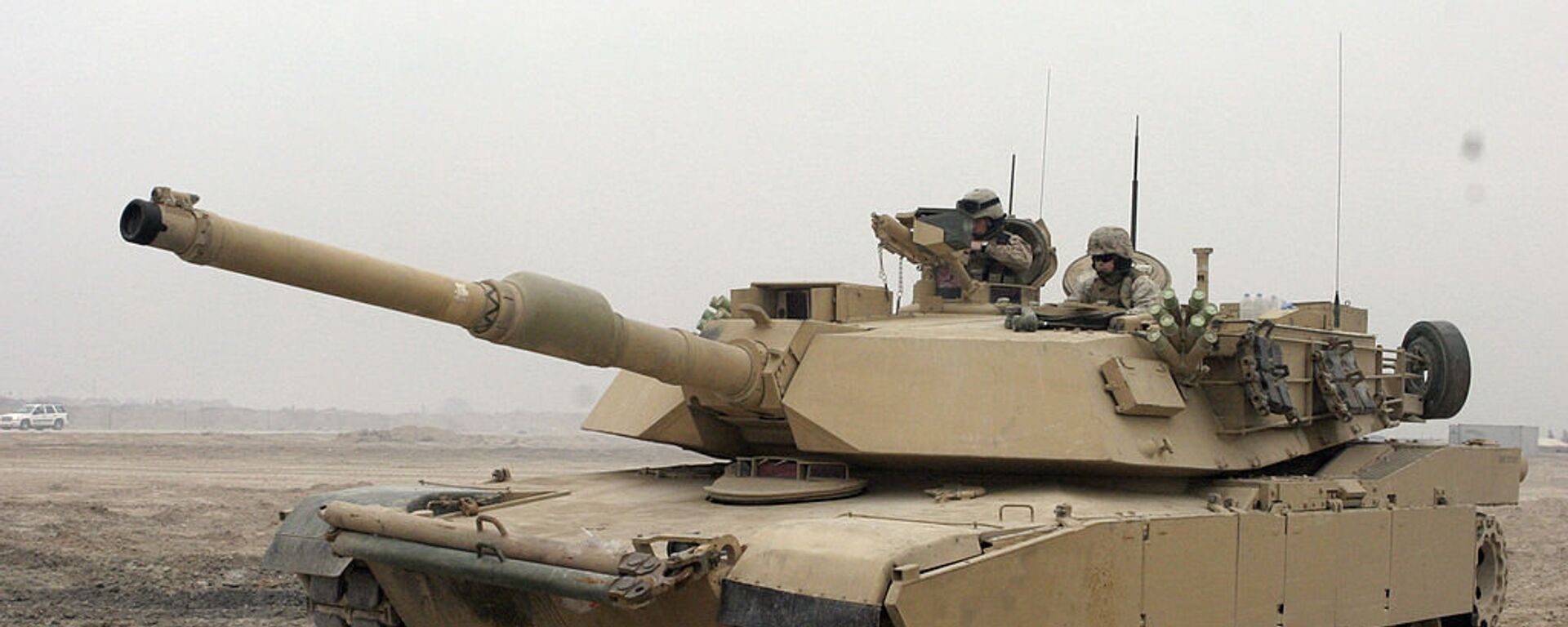Australian ‘Garage Sale’ APCs Pawned Off on Kiev Worse Than Useless
16:13 GMT 30.06.2023 (Updated: 17:12 GMT 30.06.2023)

© Photo : Twitter / @RichardMarlesMP
Subscribe
Australia announced an AUD $110 million (USD $74 million) military aid package to Ukraine this week including 28 M113 armored vehicles, 28 MAN 40M medium trucks, and 14 special ops vehicles. Unfortunately for ordinary Ukrainian troops, experience has shown Aussie vehicles to be worse than useless against Russian forces.
A scandal is brewing in Australia over Canberra’s decision to pawn its Vietnam War-vintage military equipment off on Kiev, with local military experts questioning how the aid that has been announced could possibly add up to $110 million AUD, while opposition leader Peter Dutton said it’s “frankly embarrassing” that Australia is sending equipment to Ukraine that’s so clearly “not fit for purpose.”
“You can’t just clear out the garage from Defense of old vehicles that you don’t want anymore. That’s not the response of a developed nation like ours,” Dutton said, dubbing the aid package the equivalent of a “garage sale.”
The media has had a field day attacking the Albanese government, characterizing the assistance – particularly the M113s, as absolute “obsolete boneyard vehicles” from the Vietnam War era that would have little impact on the Ukrainian battlefield. Other observers said Canberra’s “stingy” “hand-me-down aid” is fueling perceptions of Australia as “using Ukraine as a dumping ground.”
Dutton suggested that instead of sending the 1964-vintage M113s, Canberra should give Kiev its newer Hawkei light four-wheel-drive protected mobility vehicles, produced by Thales Australia, and ramp up production so that Australia’s own military “doesn’t go without.”
Is the M113 Really That Bad?
“The M113 is a fairly old armored personnel carrier on a tracked chassis, which has participated in many conflicts, not just the Vietnam War, but also the wars in the Persian Gulf, and other military campaigns involving the United States and its allies,” veteran Russian military expert Alexey Leonkov, editor of Arsenal of the Fatherland magazine, told Sputnik. “They were generally successful in these wars, as well as local conflicts which we can characterize as colonial wars. That is, the losses were not so great,” the observer explained.
“But in Ukraine, these APCs showed from their very first deliveries that they cannot withstand the intensity of the conflict,” with armor vulnerable to heavy weapons, including the 30mm automatic guns fitted to Russian attack helicopters, Leonkov said.
In other words, the expert noted, if the main purpose of an armored transport is to safely deliver troops to the frontline, in the case of the M113, doing so is possible only by happy accident, and if Ukrainian forces don’t happen to run into heavily-equipped Russian forces.
“That is, in the majority of cases, if such an APC finds itself in a zone of heavy fire, the best thing that Ukrainian troops and mercenaries can do is to leave the vehicle. Because if someone stays behind and hopes that the M113’s aluminum armor will save them, they’ll play too high a price. We’ve seen a great deal of footage from the front lines showing these APCs knocked out, stuck in off-road conditions. They’ve proven absolutely unsuitable for this theater of operations,” Leonkov said.
Ultimately, Leonkov said, Australia, the US, NATO, and the West in general have indeed used Ukraine as a dumping ground for their “armored junk,” allowing them to clear out inventories as the military-industrial complex ramps up production of modern equipment. “They’re profiting on it. But of course, this is profit gained on the blood of Ukrainian service members. But Australia, like other countries supplying weapons to Ukraine, is absolutely not interested in this.”
Recent reports that Australia sent over AUD $70 million of its military assistance to Ukraine without formal approval, declarations, or export permits is further confirmation of such profiteering, since shipping junked vehicles to Ukraine is cheaper than having to recycle them domestically, according to Leonkov.
“If Australia’s anti-corruption legislation really works, if it is serious, I think they’ll sort it out. If they don’t, we can confidently say that such legislation is merely a formality,” the observer summed up.




